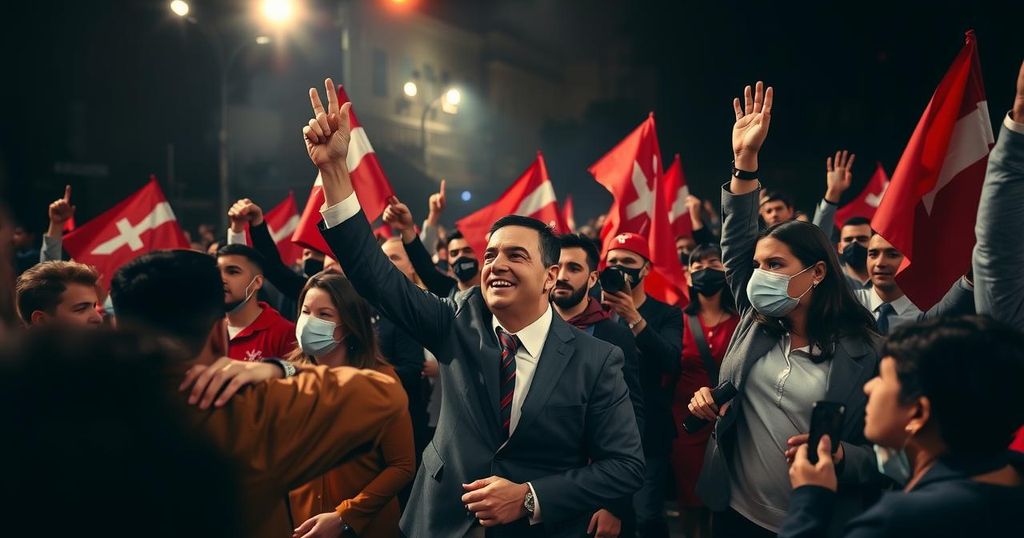The Georgian Dream party won the parliamentary election with over 54% of the vote, securing 89 seats in the 150-member parliament while falling short of a constitutional majority. Opposition parties protested, claiming the election was fraudulent and characterized it as a “constitutional coup.” President Salome Zurabishvili and opposition leaders raised concerns about voter intimidation and violence at polling stations. Bidzina Ivanishvili celebrated the victory but acknowledged the political complexities associated with Georgia’s alignment with the West versus Russia.
The recent parliamentary election in Georgia concluded with the Georgian Dream party being declared the victor by the country’s electoral commission amidst significant protests from opposition groups. As per the central election commission chair, Giorgi Kalandarishvili, over 99% of precincts reported that Georgian Dream secured more than 54% of the vote. This win translates to 89 seats in the 150-member parliament, enabling the ruling party to retain governance. However, this result falls short of the absolute majority needed to effectuate constitutional amendments. The opposition contended that the election was marked by irregularities, describing it as a “constitutional coup” rather than a legitimate democratic process. Tina Bokuchava, the leader of the opposition United National Movement (UNM), vehemently stated that the election results were “falsified” and indicated that the outcomes reflected a theft of Georgia’s democratic future. Nika Gvaramia, head of the Ahali party, echoed her sentiments by declaring that the methodology of the election constituted governmental overreach. Meanwhile, President Salome Zurabishvili voiced her concern regarding reported incidents of violence at polling locations. Despite the opposition’s denouncement, Bidzina Ivanishvili, the founder of Georgian Dream, applauded the electoral outcome as a sign of the party’s sustained popularity, particularly in rural regions where they obtained significant support. Ivanishvili has campaigned on the premise of maintaining Georgia’s neutrality amidst the Ukraine crisis, promoting a narrative suggesting that the alliance with the West poses an imminent threat to the country. In the wake of these events, various monitoring organizations, including the Organisation for Security and Co-operation in Europe, are expected to evaluate the circumstances surrounding the election. Voter intimidation and allegations of ballot tampering have raised further questions regarding the integrity of the electoral process, which is perceived as critical in determining Georgia’s future alignment with European institutions.
The political landscape in Georgia has been exceedingly turbulent, particularly as tensions between pro-Western factions and those leaning towards Russia persist following the election. The ruling party, Georgian Dream, has cultivated a narrative of stability and neutrality, often attributing the need for caution against engaging in conflicts aligned with Western powers. Opposition parties have positioned themselves as alternatives aimed at deeper integration with the European Union, casting the election as a pivotal moment for democratic governance. The European Union has also expressed concerns over Georgia’s trajectory towards democracy, critical for the candidate country’s potential accession to membership.
In conclusion, the election results in Georgia signify a continuing divide in the nation’s political orientation, with Georgian Dream managing to hold onto power amidst allegations of electoral malpractice from opposition parties. The victory ensures that Georgian Dream will lead the parliament, yet it lacks the requisite majority to initiate constitutional reforms. The subsequent response from opposition leaders and civil society regarding the electoral integrity raises significant questions about the future of democracy in Georgia and its aspirations for European integration. The international community’s reactions will be crucial in shaping the forthcoming political climate.
Original Source: www.aljazeera.com






